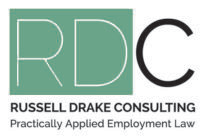Employers are increasingly dealing with the absence of a growing number of Employees through both non-work- and work-related illness or injury.
Medical Incapacity is the obvious and widely used go-to as a resolution for both parties, when the absence has been for a significant amount of time, and where the Employee is no longer able to fulfil the role in which they were employed.
However, hovering under the radar and out of the spotlight sits this alternative option.
Employees could see as a more dignified way of leaving their job when they suffer an illness or injury that sees them unable to work within a role or industry that they have potentially spent years within and/or specifically trained for.
Medical Retirement is unlike normal retirement. This enables Employees to retire from the role or industry that they are now unable to work within and are able to look for employment in an alternative position that is not limited by their illness or injury. Where normal retirement is taken, Employees leave the workforce and often do not work again.
Unlike Medical Incapacity, Medical Retirement is a mutual agreement by both parties, following discussion and consultation between the Employee and the Employer.
From an Employers perspective, Medical Retirement can offer some certainty, with the hiring of a replacement Employee being possible sooner with this also assisting in maintaining a good relationship with the Employee involved, which in turn could potentially reduce the risk of receiving a Personal Grievance for Unjustified Dismissal.
For the Employee, having Medical Retirement as the reason for leaving their employment, rather than a dismissal for Medical Incapacity, can be a preference when exploring alternative employment with this preserving their pride in what could already be a very difficult period.
Managing Medical Retirement
As touched on earlier, the Medical Retirement process needs to be agreed upon by both parties and is not something you, as an Employer, can enforce upon the Employee.
When having the initial conversation, it’s important not to put any pressure on the Employee to resign as this could create risk and liability you’ll want to avoid further down the line.
As with any process where an Employee’s Terms and Conditions could be affected, it’s important to remind them of their right to Support and Representation for advice and/or accompaniment within any meetings that take place to discuss this option.
This can be a difficult time for all parties involved and it’s important to remember your Good Faith obligations to ensure a fair and reasonable process is followed.
If you find yourself in a situation where you are asking the question ‘Medical Retirement or Medical Incapacity?’, please feel free to contact us on 07 838 0018 and we will be more than happy to guide and support you through the process with any advice or documentation that you require.
Within our next newsletter, we will be explaining further how you might make the decision regarding whether to use Medical Incapacity or Medical Retirement.

